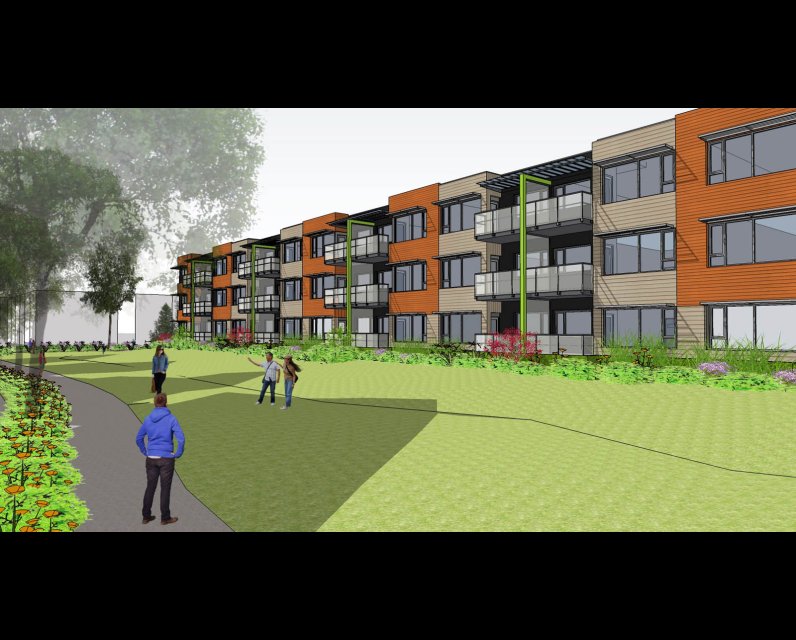Unpublished Opinions
Dennis Carr has 30 years’ experience creating affordable housing and social facilities in Ottawa and Vancouver. From 2009 to 2014 he was Assistant Director, Social Infrastructure, for the City of Vancouver. He is the recipient of the 2016 Canadian Housing and Renewal Association Lifetime Achievement Award.
Does Ottawa Need a Community Land Trust?

The City of Ottawa has asked the federal housing minister for funding to build 1,300 new units. But where will the 1,300 new affordable units be created if the City of Ottawa can’t provide the land?
Does Ottawa Need a Community Land Trust
Last fall, the City of Ottawa's submission to the new national housing strategy consultation described a long standing housing affordability crisis requiring people on low incomes to choose between paying bills, buying groceries or paying rent. Last February, City officials announced plans to write to the federal housing minister asking the federal government to triple their funding so the city can build 1,300 new units
And rightly so because in 2015 6,800 individuals used Ottawa’s emergency shelters and 10,100 applicants were on the waiting list for affordable housing. The wait time for housing is up to five years and in 2015, only 34 new affordable housing units were created, the lowest since 2005.
What the City failed to mention is that the City is selling off its inventory of land for social housing. The City’s land development corporation (OCLDC), which has a mandate to achieve City strategic plan objectives through real estate development, recently listed several properties for sale, including multi-unit residential and mixed-use sites that could be used to further the City’s long term social infrastructure needs.
Particularly egregious was the sale of a Randall Avenue family housing property which was on the City’s list of affordable housing sites notwithstanding the fact that in 2015, 39% of all shelter clients were members of a homeless family! This sale contradicts Council‘s own Housing First policy for surplus City lands.
Where will the 1,300 new affordable units be created if the City of Ottawa can’t provide the land? If the city can’t be relied upon to be responsible stewards of municipal assets, what is the alternative? Perhaps the answer is a community land trust.
A community land trust is a nonprofit corporation that develops and stewards community assets such as affordable housing. The land trust legally separates ownership of the buildings and homes from ownership of the land thereby removing the property from the speculative land market.
Land trusts have the unique ability to form partnerships by uniting the equity and advocacy potential of the not-for profit sector under the banner of social infrastructure development. Land trusts can harness the energy of hundreds of isolated non-profit and co-operatives groups, combining their equity and their clout to finance new developments.
Community land trusts have been around a long time in various forms. One of the best known is in Burlington, Vermont where mayor Bernie Sanders helped make it possible in the 1980s.
In Vancouver, a land-trust model is paving the way for affordable rental housing amid Canada’s most expensive housing market. The Vancouver Community Land Trust Foundation is currently developing 358 non-profit and co-operative units on city land.
The City of Vancouver leased four parcels of land to the community land trust because it provided better benefits than individual non-profits groups because the larger entity would be capable of creating, financing and managing multiple projects. This fits in with the City’s target of creating 2,550 affordable units on city land over the next four years. Vancouver can do this because their strategic land bank acquires and hold property for city objectives.
The land trust model works especially well for large tracts of surplus land such as Lebreton Flats because it can also be used for childcare and the other social facilities needed to create complete communities.
Ottawa’s not-for-profit housing sector is resilient has shown great capacity to find funds and create partnerships to build affordable homes but the City needs to support the sector by providing land.
Municipalities in Ontario have jurisdictional responsibility for affordable housing. Council’s failure to connect the dots between its policies and practices has resulted in lost opportunities to build the critical social infrastructure needed to shape the future of our city. A community land trust is one way the City of Ottawa can build community assets that will serve the long term needs of its citizens.



Comments
Be the first to comment